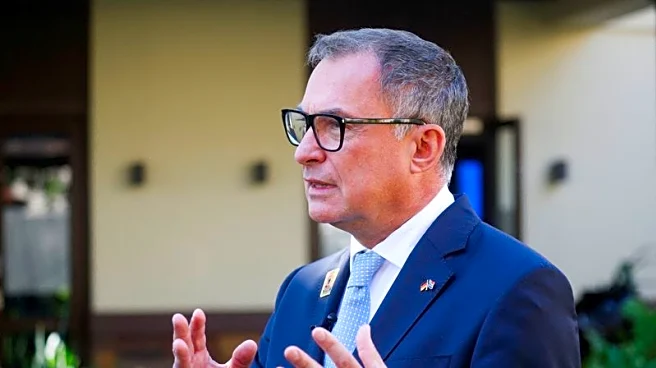What's Happening?
Israel and Hamas are trading accusations over the return of hostage bodies, threatening the fragile ceasefire brokered by President Trump. Israel demands the return of 19 hostages' bodies, warning of military action if Hamas fails to comply. Hamas claims
the process may take time due to bodies buried in destroyed tunnels and rubble. The situation complicates peace efforts and highlights challenges in implementing the ceasefire agreement.
Why It's Important?
The dispute over hostage bodies poses a significant threat to the ceasefire and regional stability. The successful implementation of the ceasefire is crucial for maintaining peace and preventing further conflict. The situation impacts humanitarian efforts and diplomatic relations, with potential consequences for U.S. foreign policy and international perceptions of the conflict. The resolution of this issue is vital for achieving lasting peace in Gaza.
What's Next?
Negotiations are likely to continue as both sides seek to resolve the issue of hostage bodies. The international community may need to intervene to support peace efforts and ensure the ceasefire's success. Monitoring the situation closely will be essential for assessing the potential for renewed conflict and the impact on regional stability. Diplomatic efforts may be necessary to address the underlying tensions and facilitate the return of hostages.
Beyond the Headlines
The dispute raises ethical and legal questions about the treatment of hostages and the responsibilities of conflicting parties. The role of international mediators highlights the complexities of diplomatic intervention in regional conflicts. Long-term implications may include shifts in political power and governance structures in Gaza, affecting future peace efforts and regional stability.
















